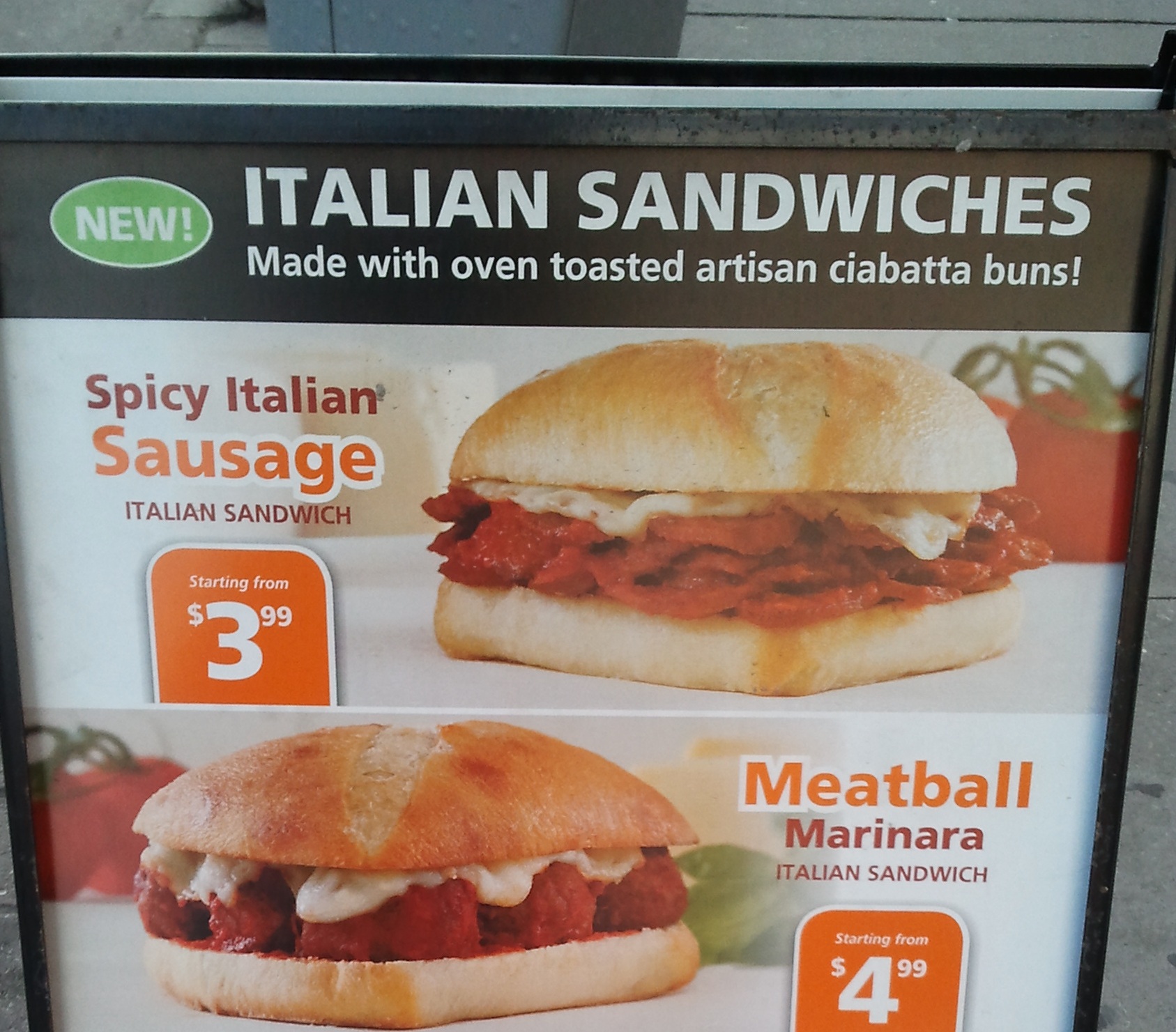I was walking past the Pizza Pizza near my office.
They had a sandwich board outside, appropriately advertising sandwiches.
And not just any sandwiches, but sandwiches on “artisan ciabatta buns!”.
I asked the guy behind the counter and of course, the buns are frozen.
Now whether food can be both “frozen” and “artisan” is questionable.
But as the LA Times reported on Sept 28, 2011 “Wendy's has its Artisan Egg Sandwich, Ralphs Markets offers Private Selection Artisan Breads and Starbucks sells Artisan Breakfast Sandwiches”.
More intriguing than foodie nomenclature, is the speed of the word’s downward trajectory.
In just a few years, “artisan” has become a cliché to be avoided, and evidentially it’s not alone.
Lake Superior State University just released its 37th annual list of Words Banished from the Queen's English for Misuse, Overuse and General Uselessness.
Their methodology is hardly scientific - the public basically nominates words they’re fed up with.
This ad-hoc approach probably explains how “occupy”, as in Occupy Wall Street made the list.
According to Wikipedia, OWS only started on September 17, 2011.
Can a word really reach it’s sell by date in less than 4 months?
Apparently it can.
From kilobytes to petabyte, language is changing faster.
And it can legitimately be said that acceleration is just as much part of the zeitgeist as innovation.
"Faster, Faster until the thrill of speed overcomes the fear of death", as Hunter S. Thompson said.
Our love affair with speed is inextricably bound with our need for the new.
So we don’t just consume tangible products like cars and fashion and technology.
We also consume ideas, creating a vortex of novelty and redundancy, and nowhere is the churn more pronounced than with business jargon, where today’s hot phrase is tomorrow’s cliché.
And if you blinked, well you know…
And business publications from Inc to heavyweights like the Economist and Harvard Business Review implore us not to use certain clichés.
But dismissing a phrase simply because it’s a cliché seems foolhardy, because not all clichés are created equal.
Low hanging fruit may be an evocative metaphor, but it’s an unnecessary piece of business jargon.
You’d be better off saying: easily attainable objectives or rapidly achievable results.
It’s easy to forget every cliché was once original.
Thinking outside the box, contrary to popular wisdom, is an extremely elegant phrase.
You may not be aware of the phrase’s origin describing a solution to the nine dot puzzle.
[youtube=http://www.youtube.com/watch?v=BJS4TvjTDaI]
It’s a metaphor rooted in reality and purpose and one that’s not easily paraphrased.
But use thinking outside the box in a meeting and you’ll be lucky to escape with a funny look.
The problem with thinking outside the box is not that the phrase is a cliché, but it’s a cliché that’s become diluted through misuse.
While E=mc2 and the iPhone are examples of thinking outside the box, your new promotion for acme widgets almost certainly isn’t.
But we crave the next new, so we shoot the messenger anyway.




